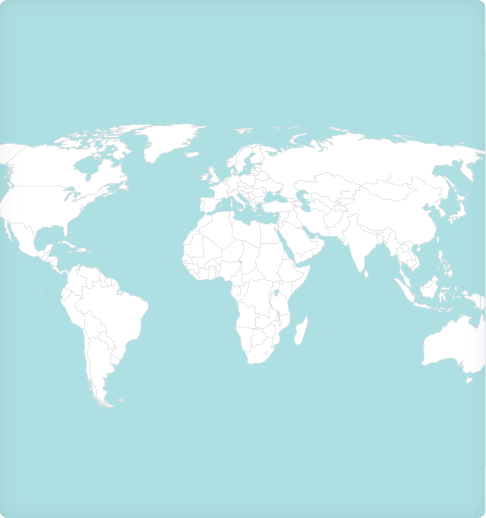Credits
16
Prerequisites
None
Courses taught in
English
Dates
early September – mid-December
Program Countries
South Africa
Critical Global Issue of Study
Global Health & Well-being

Explore community-based healthcare in South Africa and examine the roles of the state, the media, and nongovernmental organizations.
16
None
English
early September – mid-December
South Africa
Global Health & Well-being
SIT First Year: a new experience from SIT, the fully accredited leader in academic and social justice-driven study abroad.
With a history of colonialism and apartheid, South Africa brings into sharp focus the role of race in determining health and well-being. Despite the country’s progressive constitution that guarantees socio-economic rights to all, racial and gender inequalities still have adverse effects on health outcomes. You’ll examine health services across Cape Town and the Western Cape of South Africa to gain a deeper understanding of how traditional healers, the state, the media, nongovernmental organizations, and state-of-the-art hospitals address health challenges. As we move from urban to rural settings, you’ll learn about health communications, health education, and prenatal and “first 1,000 days” health strategies. You’ll also visit Boulders Beach penguin colony and journey to Cape Agulhas, the southern tip of Africa.
None.


Learn how changes in political structure affect health and community life in the rural township of Zwelethemba in positive and harmful ways—from grassroots activism to persistent health disparities.
Issues around farmland, fishing rights, pesticides, and water access will figure in our examination of health in the rural fishing village of Arniston, a community committed to health justice and political, social, and economic transformation.
Visit the protected penguin colony at Boulders Beach and the most southerly point of the African continent, Cape Agulhas, for fun exploration and spectacular views.
Please note that SIT will make every effort to maintain its programs as described. To respond to emergent situations, however, SIT may have to change or cancel programs.
The following syllabi are representative of this program. Because courses develop and change over time to take advantage of dynamic learning opportunities, actual course content will vary from term to term.
The syllabi can be useful for students, faculty, and study abroad offices in assessing credit transfer. Read more about credit transfer.
This course prepares students to transition from high school to college, as well as between living and learning at home and abroad. Course content and activities, including basic language instruction, orient students to the intellectual, social, and intercultural atmosphere of their learning community. Through experiential learning activities and personal reflection, students will develop the transferable knowledge, skills, and habits that lead to success, well-being, and resilience in the program, in college, and beyond. Course concepts include cultural immersion, anti-oppression and anti-bias training, mindfulness for well-being, “campus” resources, and academic success strategies.
The Community Engagement and Reciprocity course challenges students to develop appreciation of multiple perspectives and an understanding of reciprocal engagement with local communities. Students are asked to employ “service listening” (as opposed to “service learning”) as they learn what reciprocal engagement means for their local host communities. Volunteer experiences with SIT community partners help students learn about the practical and ethical concerns that shape engagement and reciprocity in community action. Students will develop knowledge, skills, and perspectives that transfer to their academic trajectories, while experiencing mutually beneficial civic and community partnerships.
The Career Pathways and Explorations course guides students in an exploration of their interests, field experiences, and personal goals to craft pathways toward their academic and career goals. Students are guided through reflective, exploratory, experiential, and information-gathering exercises that help them articulate long-term goals. Students are offered mentorship as they gain tools to help achieve those goals. By the end of the semester, each student develops a pathway map: a plan that identifies goals and concrete steps through college and toward a career. Concepts include personal identity, values, and career choices.
SIT programs are developed around a framework of the most critical global issues—challenges that transcend borders to touch every aspect of life. The First Year Seminar uses the Critical Global Issues framework to explore topics through local, regionally comparative, and global perspectives. It aims to foster a sense of ethics and an inclusive, diverse approach in academics. The SIT First Year Seminar promotes close interaction between faculty and students in a small setting to increase intellectual engagement and help students develop skills for academic success.
This course leverages students’ unique opportunities abroad to focus on ethical engagement and introduce them to research, research design, and field-based methods for exploration. We will explore community-based research strategies, an approach that prioritizes local knowledge to mitigate the socio-cultural, economic, and structural barriers that prevent success in effecting social change.
This survey course provides an overview of public health, an interdisciplinary field dedicated to promoting and preserving the health and well-being of individuals and communities. In this course, we will focus on the concepts, practices, and structures that impact health outcomes and how systems of care operate within larger sociological and environmental systems rife with inequities. In the era of COVID-19, which brings health disparities and inequities into greater relief, this course encourages students to recognize the complex interactions between individual and community health, policy and practice, the biomedical and social issues, as well as the environment and health. Our objective is to assess the effectiveness of different public interventions at promoting and protecting health.
This program consists of a semester-long, two-unit group internship with a community organization, research organization, business, cultural institution, or international NGO. Small groups of students are placed together and given a project to tackle as a team under the mentorship of the organization (for instance, putting together a study or marketing campaign, developing a social media strategy, etc.). The group internship concept allows the first-year student to pursue career interests, but in the less complex environment of an individual project. The organization may also ask individual students to do job-shadowing or provide other duties during the internship. This group internship aims to help students sample a prospective career, gain experience for their resumes, and get valuable learning experience in a professional environment. It enhances critical thinking, time management, and intercultural communication skills in an international professional environment. An internship is part of the student’s experiential learning on the program and is not a paid job.
Students may take a language course as an elective. Students will be placed in the appropriate level of a local language (taught in person), or any other language offered by SIT via our online language programming.
This option will be determined in collaboration with students’ home schools.



SIT Study Abroad is committed to ensuring that international education is within reach for all students. We believe in the transformative power of immersive, intercultural experiences and are dedicated to supporting students in their educational journey.
Learn More
A critical step in preparing for your study abroad program is planning how you will maintain your health and wellbeing. Please review the following information carefully and contact [email protected] with any questions or concerns.
View Information